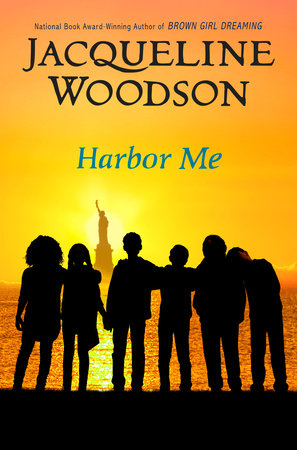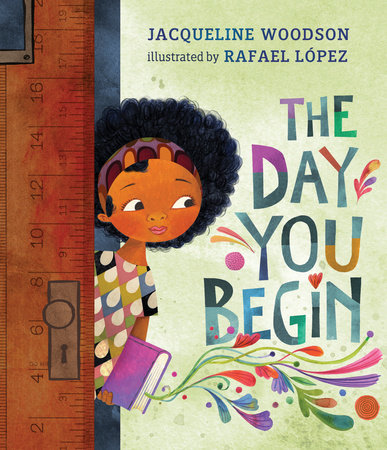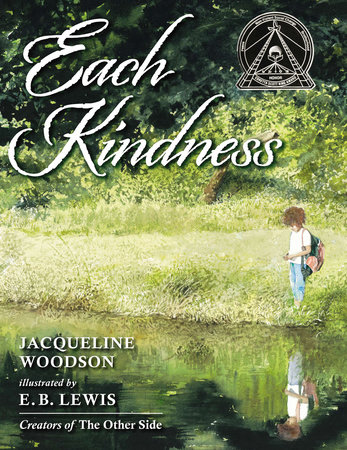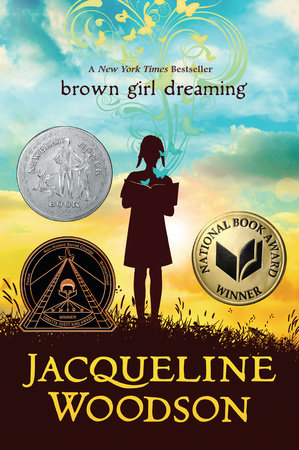‘Reading Gives Us Hope’:
A Q&A with Bestselling Author Jacqueline Woodson
by the Brightly Editors
Jacqueline Woodson, bestselling author of titles ranging from picture books to adult books, is a master storyteller. Her kids’ books — including Brown Girl Dreaming, Each Kindness, If You Come Softly, The Day You Begin, and Harbor Me — are beloved by real-life readers and live on bookshelves in homes, classrooms, and libraries across the world. Her work has also garnered some of the most coveted literary awards (Newbery Honor Medal, Coretta Scott King Award, and National Book Award, to name a few). We were beyond thrilled to ask Woodson a few questions about writing, reading, and her platform as the current National Ambassador for Young People’s Literature.
Jacqueline Woodson’s newest middle grade book, Harbor Me, is a Brightly’s Book Club for Kids pick. Click here to explore activities and discussion questions inspired by the book!
How did you come up with “Reading = Hope x Change” for your platform as National Ambassador for Young People’s Literature?
I was trying to think of what the sum of reading was — what did it add up to? Reading gives us hope. And it changes us. When we meet characters in books, fall in love with them, cheer for them, we become more empathetic. More hopeful. More thoughtful about the bigger world.
The Day You Begin brings to mind a line spoken by your mother in Brown Girl Dreaming: “You’ll face this in your life someday … / A moment when you walk into a room and / no one there is like you.” Can you talk about what this line means to you?
It means just that — that at some point we all feel outside of a narrative, “other” in some way.
In many of your stories, kids take the lead in building connections — but adults, particularly educators, also play an important role. What can adults today do to help children build these connections?
Read to them. Talk to them. LISTEN to them. Expose them to people who are different from them. Never say “those people.” Young people hear this as judgement of others. If people who don’t look, believe, think, act as you do aren’t in your lives, find them in books and share those books with your young people.
Poetry appears prominently in your work, including the poems Esteban reads aloud in Harbor Me and Audre Lorde’s “If You Come Softly” in your novel by the same name. As a writer who embraces both mediums, how does writing poetry and prose feel similar or different?
I love both fiction and poetry and have come to believe the line between the two is thin to nonexistent.
Did being surrounded by readers, particularly within your family, at a very young age shape you in any way? What can access to written stories provide to kids?
I have a deep respect for books and stories and am very unafraid in a quiet room. My house was pretty quiet growing up. My mom and grandmother were both soft-spoken and we weren’t allowed (among many other things) to yell inside (or out!). Once my mom was able to afford it, we had books we owned. Before then, we had library books and always had to take out the maximum number we could. I read tons of picture books growing up because these are the books I loved the most and understood the deepest. Later on, when I hit chapter books, I spent hours reading and rereading them.
We were allowed very little television in our house and while I felt like we were the strangest family on the block when I was a kid, I look back on it now with a deep appreciation for what our parents gave us. They gave us the muscles to think deeply, see clearly, speak softly, and read for hours and hours.
-
Get the Books:
-
The Day You Begin
Also available from:If You Come Softly
Also available from:Each Kindness
Also available from: -
Brown Girl Dreaming
Also available from:





